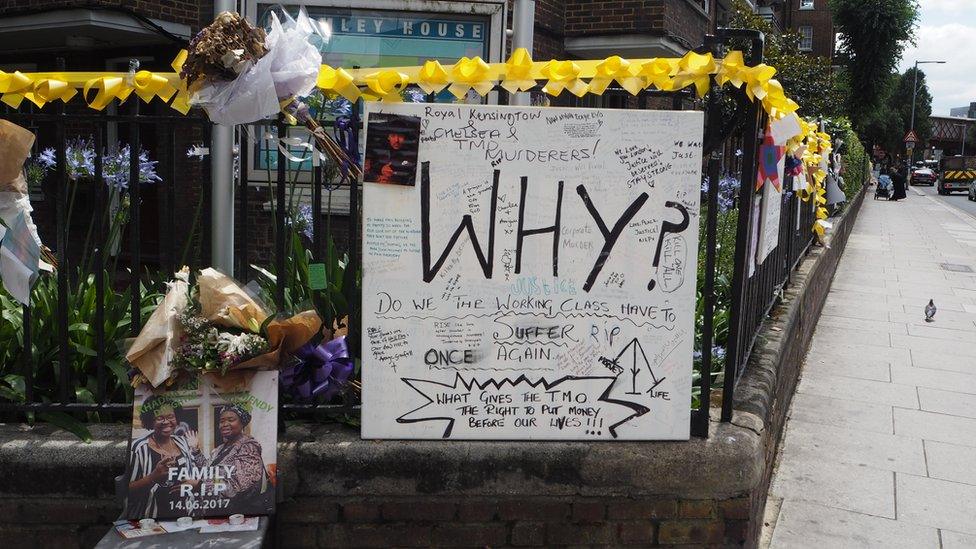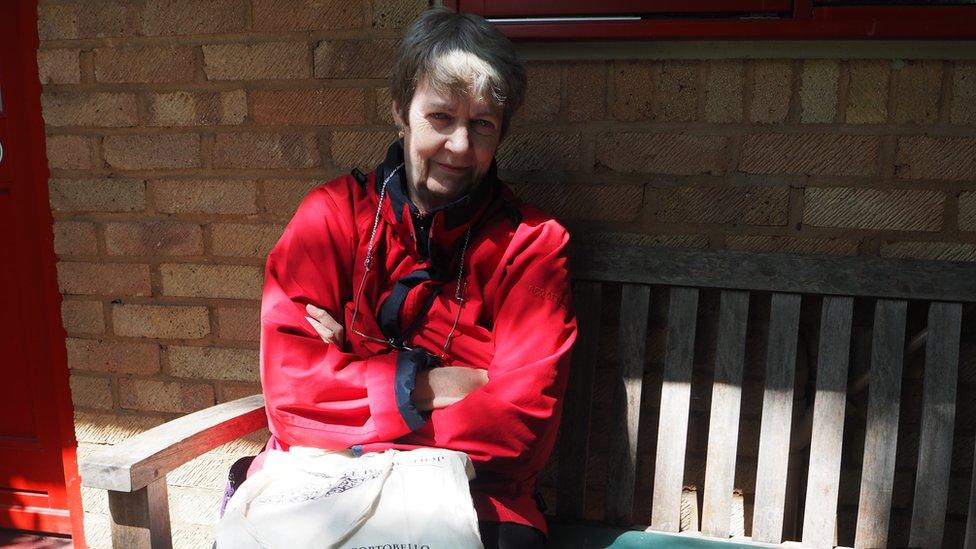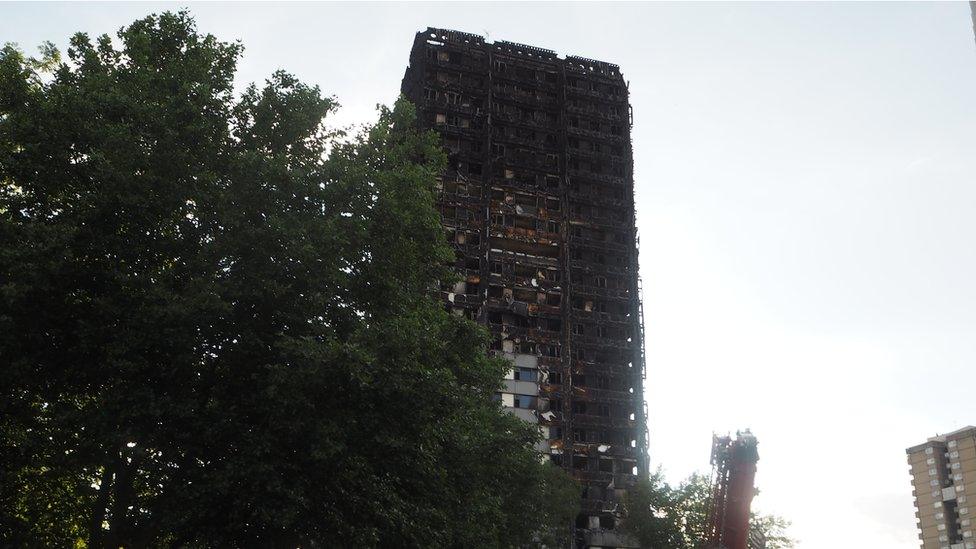Electricity problems at Grenfell Tower 'never resolved'
- Published

Former residents of Grenfell say electricity problems at the tower persisted into the months preceding the fire
Dozens of residents of Grenfell Tower suffered electricity power surges so strong their appliances malfunctioned, overheated and emitted smoke a few years before the fire, it has emerged.
Documents seen by the BBC reveal how 25 residents claimed compensation from the council following the surges in 2013.
Some say electricity problems persisted into the months before June's fire.
Police say the blaze, in which at least 80 are thought to have died, started in a fridge freezer on the fourth floor.
One fire expert told the BBC the electricity spikes could have been an issue which led to the fire starting in the first place.
Neither the council nor the tenant management organisation which looks after the tower have commented.
The documents show that 45 of the tower's 129 flats were affected by a particularly powerful electricity surge on 29 May 2013.
Eventually, 25 of those residents claimed compensation and received £200 each from the Conservative-controlled Kensington and Chelsea Council, a sum that many of them considered derisory.
In a letter dated 24 July 2013, the council's housing department stated that "…a series of surges were reported in Grenfell Tower…" and that the Kensington and Chelsea Tenant Management Organisation, or TMO, that was responsible for managing the block "…has been actively investigating the cause…".

Judith Blakeman, the local Labour councillor and a board member for the TMO, believes the problem was never satisfactorily solved
The letter was sent to Judith Blakeman, the local Labour councillor.
Cllr Blakeman, who is also a board member for the TMO, said the surge affected many electrical appliances including fridges and computers.
She believes the electricity problem was never satisfactorily solved, saying: "One of the things they tried to suggest was that the smoke that people had seen was actually steam.
"Now, that didn't go down well with residents, because they can tell the difference between smoke and steam."
Residents' representatives expressed deep concern about electricity at the block.
One document indicates that the surges caused some appliances to explode and smoke.
In an email to the TMO in November 2013, more than six months after the serious surges, a tenant representative claimed that "electrical engineers failed to detect any problem", adding "…how could this be?
"Even the dogs in the street knew by this time that the Grenfell Tower power supply was in a highly volatile and dangerous state."

Sajad Jamalvatan, who moved into Grenfell Tower only in August last year, says he was concerned about the safety of electricity
Recent electricity worries
Former residents of Grenfell say electricity problems at the tower even persisted following the refurbishment and into the months preceding the fire.
Sajad Jamalvatan, a biomechanical engineering student, moved into a flat on the third floor of Grenfell Tower only in August last year following the completion of the refurbishment works.
He said he was concerned about the safety of the electricity in the tower.
Mr Jamalvatan said the newly installed electrical meter often made a strange buzzing sound at night and constantly had to be topped up with money.
He was also concerned about the state of the wiring at the bottom of the tower, adding: "I went to the basement once and I saw a huge mess in the basement. So much wiring."
Metropolitan Police footage shows investigators entering the smoke-blackened staircases
Grenfell residents belonging to the Grenfell Action Group blogged warnings about the power surges and other problems at the tower at the time in 2013.
Joe Delaney, spokesman for the group, told the BBC there were problems with the electricity at the tower in the months leading up to the fire. He said: "There's been lots of issues with the electrics. There seemed to be a litany of problems."
Geoff Wilkinson, a building inspector and fire expert, said: "Certainly the issue with electricity spikes could well have been an issue which led to the fire in the first instance.
"If you're getting appliances overheat as a result of that then that could be an initial ignition source but that itself would not have led to the spread."

Police say the Grenfell Tower fire started in a fridge-freezer
He added, "I think it clearly concerns anyone that if you hear that there are 20 appliances in one day, there is something that is clearly wrong."
Both the TMO and Kensington and Chelsea Council said they could not comment, because of the public inquiry and police investigation into the fire.
The TMO added: "We recognise our responsibility to ensure that the investigative process is not hampered or undermined in any way."